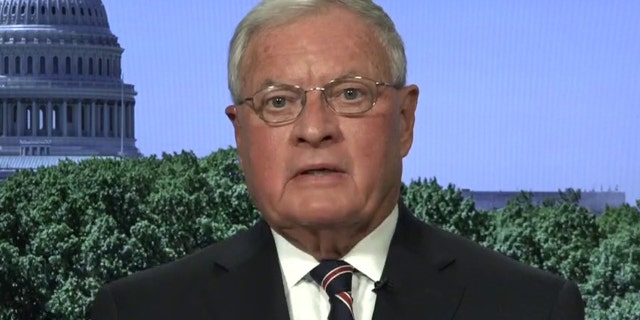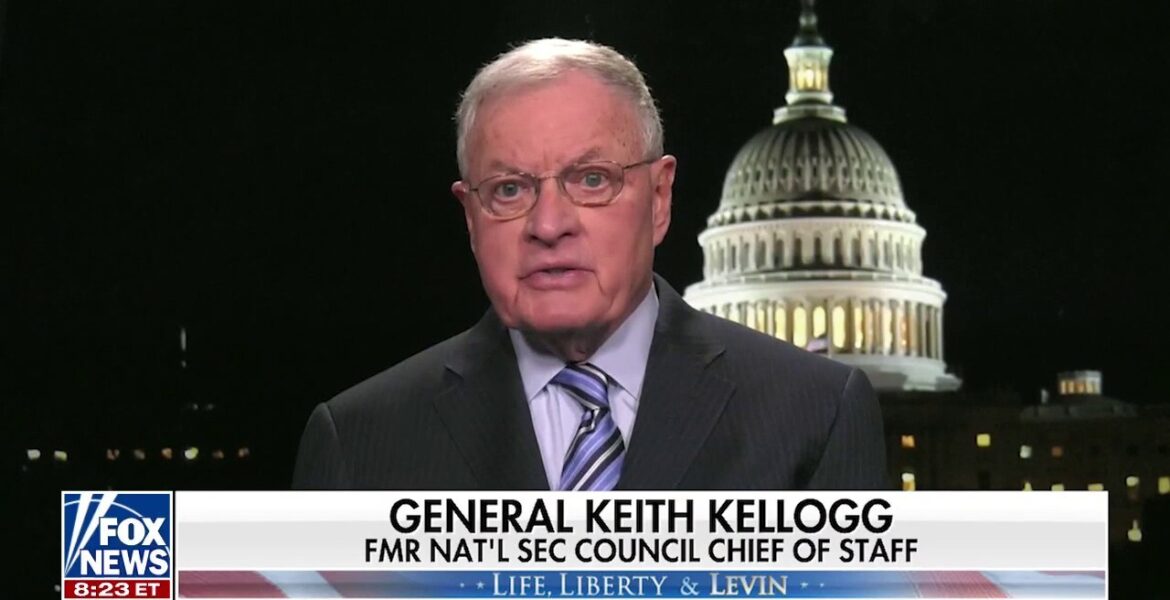Former United States Secretary of Homeland Security (under former Vice President Mike Pence) Keith Kellogg has advised Ukraine to seek weapons from three countries - including Greece.
"The thing they should do is go to Bulgaria, Slovakia and Greece, which are three NATO nations, and they've got a system called the S300, which is a Russian system that shoots down ballistic missiles and anti-aircraft [projectiles] as well, and put it around those point-targets and defend it," he said.
Kellogg said the S300 has the "slant range" to accurately strike up to eight targets at a distance between Richmond and Washington, DC, a straight line of about 105 miles.

"It'd be kind of nice to have a Russian system shoot down a Russian aircraft," he said.
Kellogg said Putin's new missile strikes within a dozen miles of the Polish border – and therefore the NATO boundary – are construed as the ex-KGB agent attempting to destroy eastbound supply lines to besieged Ukrainian cities.
"He's trying to shut down the supply lines and the airfields that are in the western part of Ukraine.
"That's the reason why no-fly-zones are not going to go.
"But that's why a no-fly-zone would be good, then that's why the MiGs would have been good because the 29 MiGs the Polish Air Force wanted to give to Ukrainians, those are good fourth-generation fighters."
"The MiG29 is a great airplane that would have increased our capacity," he said.

Kellogg went on to separately lament that the Biden administration's track record is however one that is "reactive in nature," which has not served them well in this conflict.
The United States and some of its NATO allies – Britain, Poland and the Baltic trio – have been the most vigorous in insisting that Ukraine must, for moral and strategic reasons, receive the weapons it needs to fight Russian aggression.
The moral case, strengthened by Ukrainians’ valiant resistance and President Volodymyr Zelensky’s Churchillian wartime leadership, is that Ukraine is the victim, Russia the aggressor.
Ultimately, even Germany, which had been reluctant to arm Ukraine, was persuaded by this portrayal. It sent Ukraine 1,000 anti-tank and 500 anti-aircraft missiles and changed its policy prohibiting other members of the alliance from transferring German-made weapons to Ukraine.
The United States has been arming Ukraine and training its troops since 2015 and provided it $1.5bn in military support even before the war. With Ukraine now fighting for survival, there is strong, bipartisan support in Congress for extending even more help.
On 11 March the Senate approved a spending bill, passed earlier by the House of Representatives, containing the $3.5bn in military aid for Ukraine requested by President Joe Biden.
The White House had taken bold steps even earlier. Two days after the Russian invasion the president authorized $350m in emergency military assistance to Ukraine. By early March the US had arranged for 17,000 anti-tank missiles (including Javelins) to reach Poland and Romania for overland delivery to Ukraine.
Providing Ukraine even more arms may well produce the results its proponents anticipate. It could, on the other hand, impel Russian commanders to subject Ukrainians to even greater pain.
They have already experienced enormous suffering because Russia, as the Office of the United Nations Commissioner for Human Rights (OHCHR) has noted, routinely hits civilian buildings.
If the war becomes even more brutal, Ukraine may keep resisting, but then the number of Ukrainians seeking refuge in other countries, now 2.6 million (the largest proportion is in Poland), will soar.
With Warsaw and Kraków, its two largest cities, overwhelmed by the influx, Poland has already appealed for help.
A continuing exodus from Ukraine could strain the economies and social fabric of its neighbours, especially if the war drags on, preventing refugees from returning home.
Furthermore, Russia may not stand by, allowing the west to fortify Ukraine’s army. Putin might order his generals to bomb the supply routes from Poland and Romania, the NATO countries that have the longest borders with Ukraine.
READ MORE: War in Ukraine: Nearly 10,000 refugees arrive in Greece.

